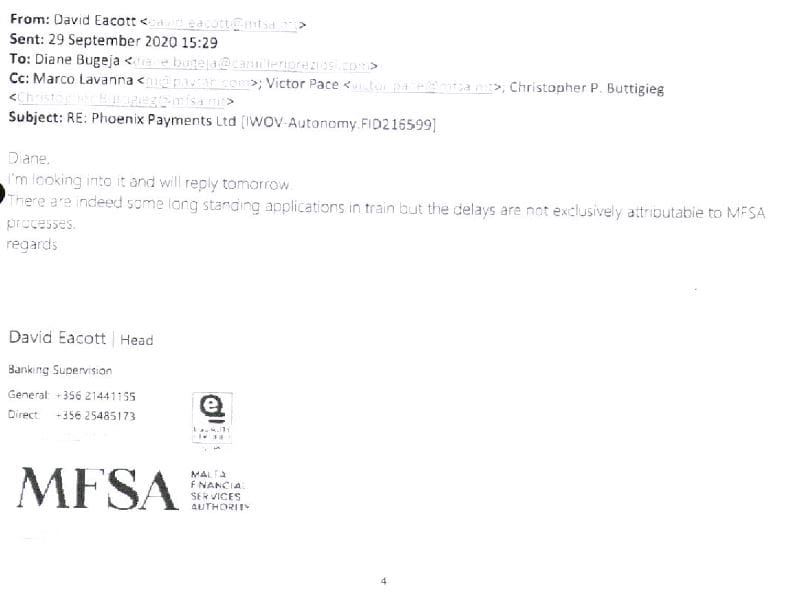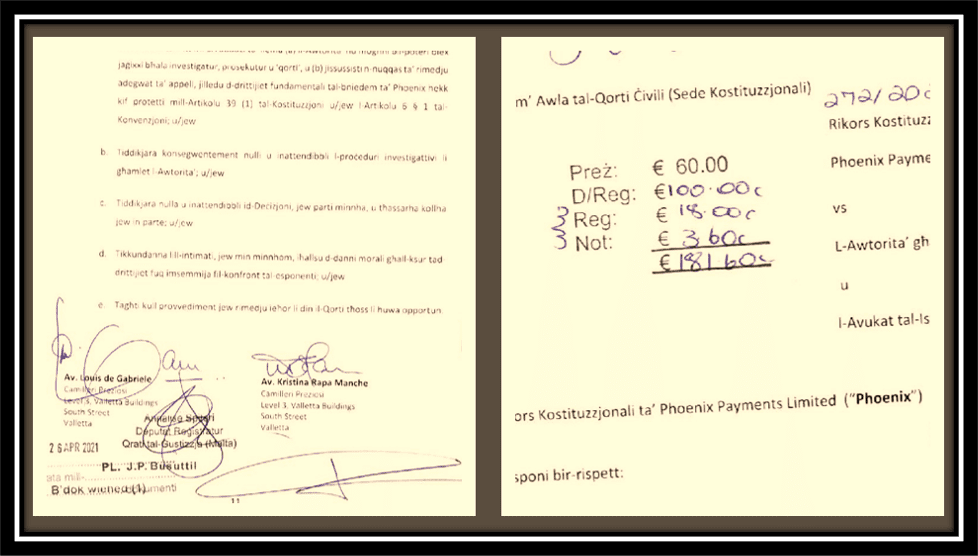Malta is second only to Cyprus when it comes to a regulatory mess. The regulated Maltese high-risk payment processor Phoenix Payments Ltd, operating under the brand name of Paytah, has sued its regulator, the Malta Financial Services Authority (MFSA). Paytah accuses MFSA of being judge, jury, and executioner. The payment processor took this unprecedented step after the Maltese regulator fined it EUR 32,400 and restricted the company’s license. This is not a normal civil court case. Instead, Paytah brought the claim against MFSA at the Constitutional Courts level. This is a first in Malta. Paytah has also sued MFSA for damages.
The Paytah Case
Fintelegram has reported extensively about the scam-facilitating payment services provided by Paytah, which has happily accepted scam-operating clients without proper KYC/AML checks. This has led to many victims losing their life savings. Based on our findings, the European Fund Recovery Initiative (EFRI) filed charges against Paytah with the MFSA and the relevant authorities.
The company’s former Chief Compliance Officer, Italian Daniela Pesci, has confirmed the suspicion of money laundering and made appropriate submissions to the authorities. In our view, there was compelling evidence that would have justified the suspension of Paytah‘s licensing by the MFSA. A regulatory action within the scope of the regulator’s authority. Instead, the MFSA appears to be taking actions that may be against the law or the constitution in Malta.
High officials within MFSA, including Edward Grech and Michelle Mizzi Buontempo, are well informed about Paytah and have failed to comfort the victims being represented by EFRI. This Maltese Authority continues to make the headlines for the wrong reasons.
No substantial fines without court order

Article 39 of the Maltese Constitution states that only a Court ruled by a Magistrate or Judge can come up with fines considered as criminal in nature. In Malta, since 2016, according to a ruling of the Constitutional Court, such fines cannot only be imposed by a court of law. In 2018 the same court decided that such cases had to be made available both at first and second instance i.e., at all stages of the proceedings.
Paytah is also arguing that Article 6 of the European Convention of Human Rights has been breached by MFSA. Such article states that in the determination of his civil rights and obligations or of any criminal charge against him, everyone is entitled to a fair and public hearing within a reasonable time by an independent and impartial tribunal established by law.
The first court hearing is scheduled to take place on 26th May 2021. However, Fintelegram managed to obtain documents related to this case, extracts of which are being published with this article.
Paytah has also sued MFSA for damages.
The never-ending MFSA chaos
It has recently been announced that the Head of the Maltese Authority, Joe Cuschieri, has resigned following revelations by the media that he had accompanied the alleged mastermind behind the murder of a journalist, Daphne Caruana Galizia, in Malta more than three years ago, on a paid trip to Las Vegas. Maltese media reported that Cuschieri was temporarily replaced by Dr. Christopher Buttigieg, who enjoyed many promotions under the helm of Cuschieri. Buttigieg was the main promoter of Malta as a blockchain island, a project which the Maltese Government has now shelved. This initiative has been described by many in the international arena as a complete failure.
Evidently, the officials within MFSA decide to issue fines without transparency, thus avoiding showing possible conflict of interests. Their meetings are also held behind closed doors. None of these officials is a Judge or Magistrate. One of the members of the executive committee within MFSA is the disgraced general counsel Edwina Licari. It is also clear that the same Authority that investigates companies is the one that judges the same and issues decisions accordingly. In criminal proceedings, the police or public prosecutor turns to the Courts, who then judges and decides on the sentence. In the case of MFSA, the same authority appears to be the judge, jury, and executioner.
